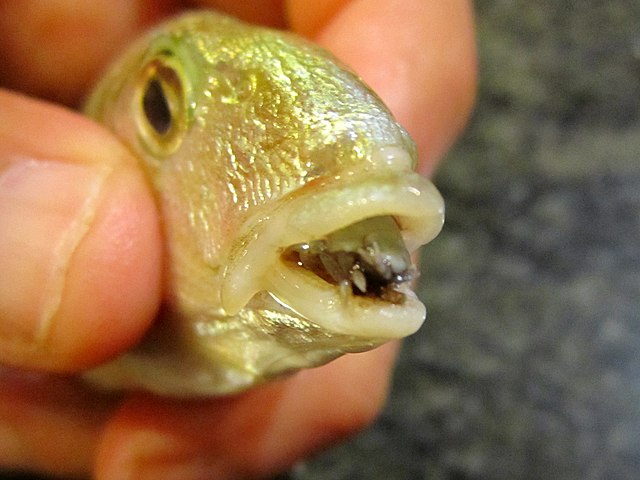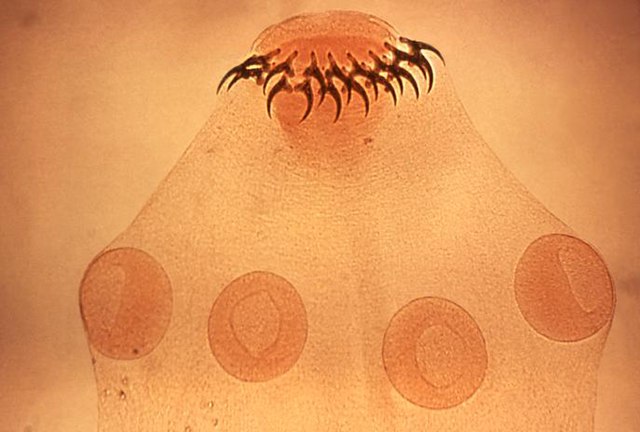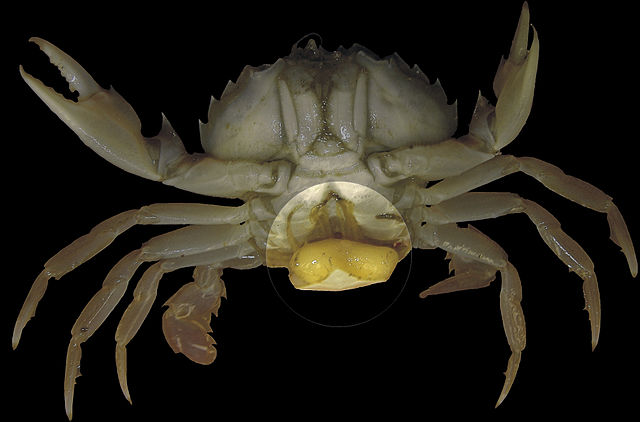The Pentastomida are an enigmatic group of parasitic arthropods commonly known as tongue worms due to the resemblance of the species of the genus Linguatula to a vertebrate tongue; molecular studies point to them being highly-derived crustaceans.
Pentastomida
Armillifer armillatus Wyman, 1848, a 4 cm individual collected from the respiratory system of a python, Python sebae. Specimen deposited in the Natural History Museum of Berlin.
Female (right) and male (left) Armillifer sp.
Parasitism is a close relationship between species, where one organism, the parasite, lives on or inside another organism, the host, causing it some harm, and is adapted structurally to this way of life. The entomologist E. O. Wilson characterised parasites as "predators that eat prey in units of less than one". Parasites include single-celled protozoans such as the agents of malaria, sleeping sickness, and amoebic dysentery; animals such as hookworms, lice, mosquitoes, and vampire bats; fungi such as honey fungus and the agents of ringworm; and plants such as mistletoe, dodder, and the broomrapes.
A fish parasite, the isopod Cymothoa exigua, replacing the tongue of a Lithognathus
Head (scolex) of tapeworm Taenia solium, an intestinal parasite, has hooks and suckers to attach to its host
The parasitic castrator Sacculina carcini (highlighted) attached to its crab host
Human head-lice are directly transmitted obligate ectoparasites







